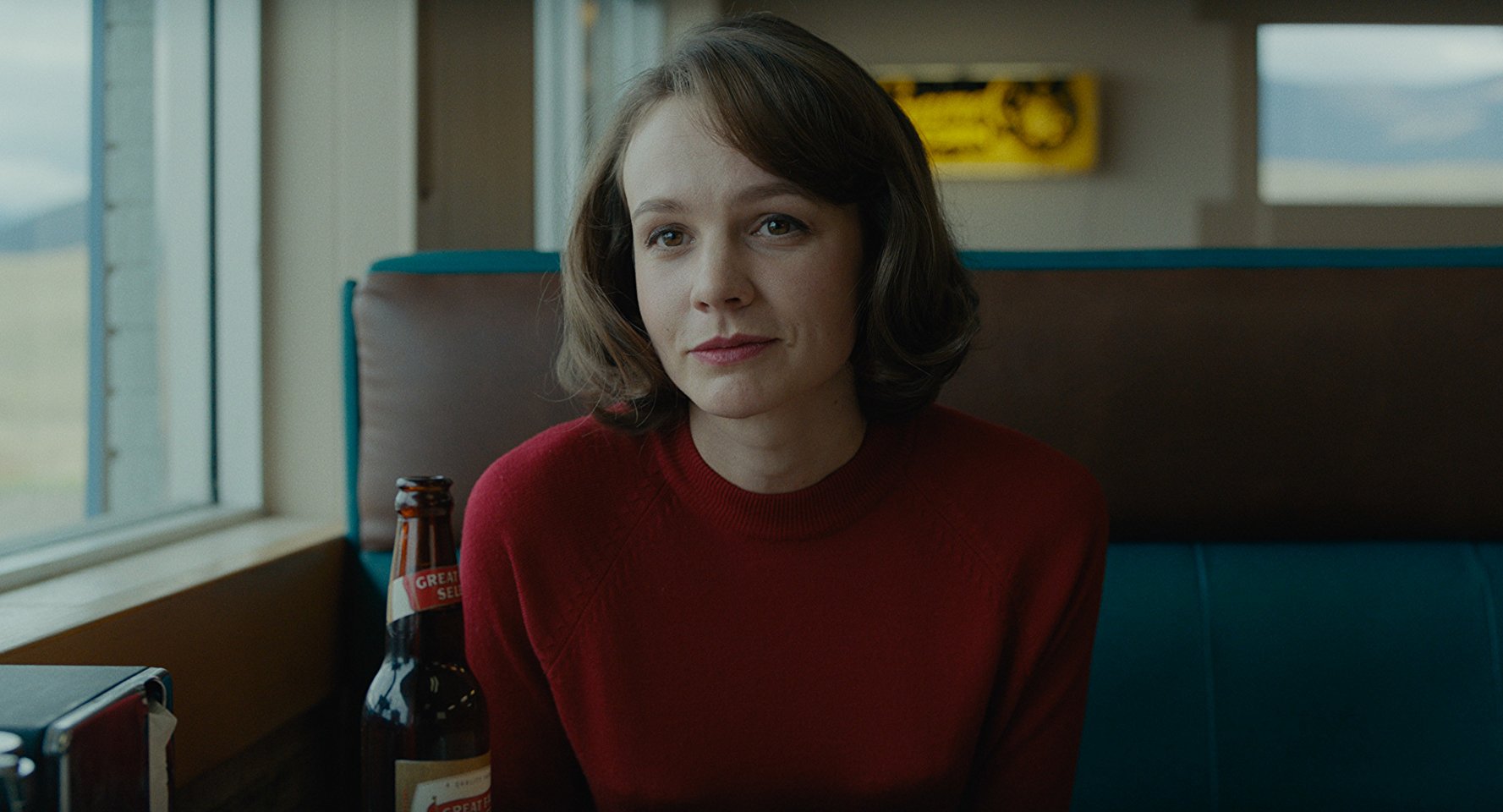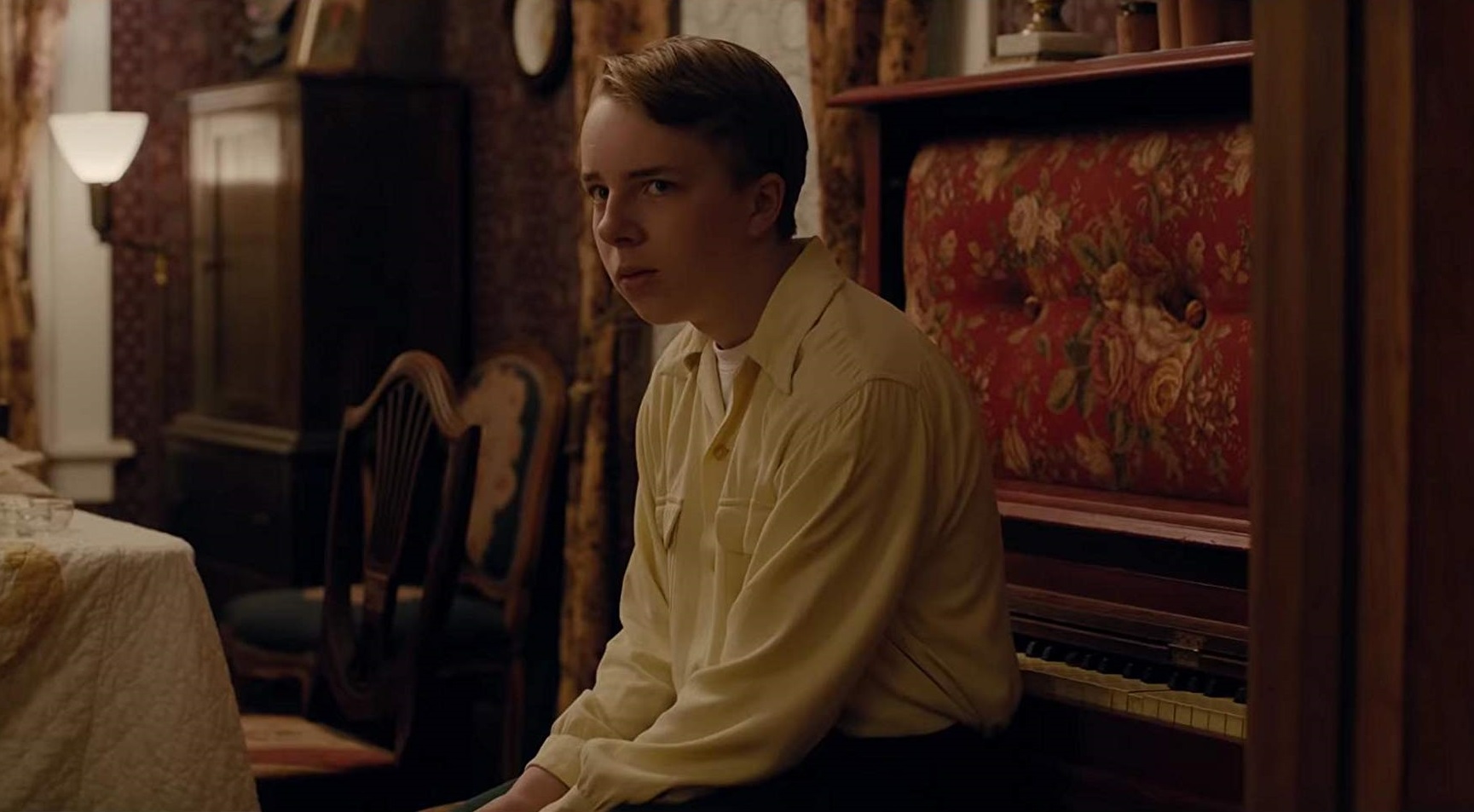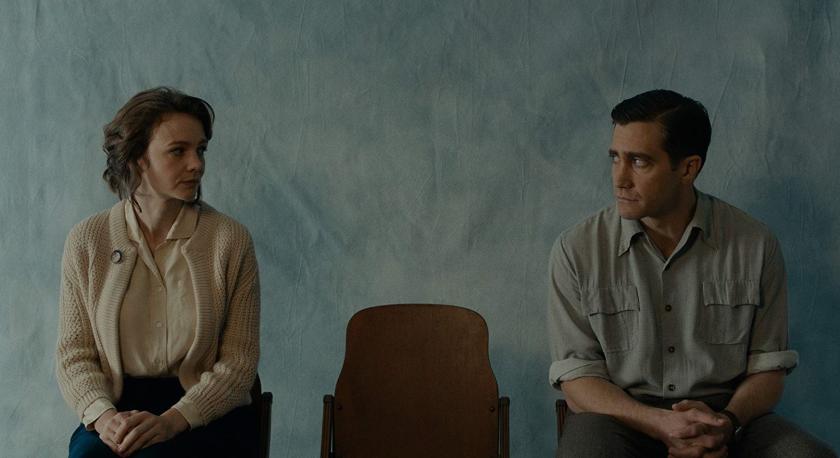A revelatory moment comes hallway through Wildlife when frustrated American housewife Jeanette Brinson (Carey Mulligan) is observed standing alone in her family’s backyard by her 14-year-old son Joe (Ed Oxenbould), the film’s anxious, steadfast protagonist. Wearing curlers, an off-white sweater and jeans, her face made-up to go out, Jeanette has a harsh, fatalistic look on her face that is new. Initially optimistic, she has been steadily souring on her marriage since her husband Jerry (Jake Gyllenhaal), too proud to take back the golf pro job from which he was sacked, departed to fight a wildfire near the Canadian border.
Jeanette has a moral point since poorly-paid, casual firefighting in the world of the film is not regarded as courageous but as the work of deadbeats. Jerry may rationalise his decision as that of a desperate unemployed man, but it abnegates his role in his family. The words Jeanette exchanges with Joe in the yard are not as sardonic as her pouty glower, but they are ominous. She offhandedly explains to her son that she wasn’t around when he left for school in the morning because she was pursuing a job at a flashy automobile dealership. It’s owned by a successful divorced businessman, Warren Miller (Bill Camp), a smug, boastful sort some 20 years her senior, whom she doesn’t much like but admires because, as she says, “things do happen around him.”
The words Jeanette exchanges with Joe in the yard are not as sardonic as her pouty glower, but they are ominous. She offhandedly explains to her son that she wasn’t around when he left for school in the morning because she was pursuing a job at a flashy automobile dealership. It’s owned by a successful divorced businessman, Warren Miller (Bill Camp), a smug, boastful sort some 20 years her senior, whom she doesn’t much like but admires because, as she says, “things do happen around him.”
There is a hint Jeanette and Miller may have slept together already. In any case, the harsh face Jeanette shows Joe denotes that she has dangerously crossed a line. In the following 30 minutes, which include some of the sharpest acting in Mulligan’s career, Jeanette acts out in front of Joe in an excruciatingly ruinous way. No less than Joe she is going through a rite of passage. The 1960s setting of the film is significant here because, in the most haphazard and irresponsible way, she is effecting her liberation. (Pictured above, Carey Mulligan)
Wildlife is the directorial debut of actor Paul Dano, who adapted the screenplay with his partner Zoe Kazan (the movie’s executive producer) from the 1990 Richard Ford novel. It unfolds in Great Falls, Montana, which is also the setting of the likeminded Ford short story of that name and other Ford stories. Jeanette sums up the emptiness of the town and her relationship with Jerry when she remarks, “What kind of man leaves his wife and child in such a lonely place?” The Brinsons are an unmoored family to begin with – they are house-renters from a neighboring state – which may be because Jerry cannot hold down any job for long. He is something of a drinker; Gyllenhaal gives him a lugubrious, almost melancholy air. The most grounded member of the family (and its conscience) is Joe, though it’s hard to imagine how he will have fared in later years having been served a double dose of Oedipal jealously by his flirtatious mom. He alone – right up to the end of the film – idealises the family unit and tries to bind it together. His coming of age absorbs the realities of his parents’ frailties and the combustibility of family life, a theme in Ford’s fiction. The Australian actor Oxenbould (pictured above) has perfected a long-suffering look. It asks, “When will these parents grow up?”
The most grounded member of the family (and its conscience) is Joe, though it’s hard to imagine how he will have fared in later years having been served a double dose of Oedipal jealously by his flirtatious mom. He alone – right up to the end of the film – idealises the family unit and tries to bind it together. His coming of age absorbs the realities of his parents’ frailties and the combustibility of family life, a theme in Ford’s fiction. The Australian actor Oxenbould (pictured above) has perfected a long-suffering look. It asks, “When will these parents grow up?”
In keeping with its minimal use of music, much of Wildlife is made up of spare, static, clear-eyed shots that depict one character addressing or looking at another character who has moved out of the frame or who was already outside it. The inference is that the Brinsons – like members of many families – perilously fail to communicate with each other. For contrast and punctuation, Dano occasionally shoots characters from a rooftop as they move down a street. Usually, they are lonely in those shots. Dano is not yet an Antonioni, but he has an eye for alienation which should serve him well in the future.













Add comment